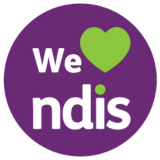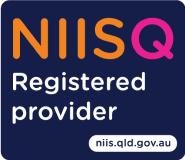
Working as a Disability Support Worker can be an extremely rewarding career option. As a Disability Support Worker, you will be providing care and assistance to people with physical and/or mental health disability. You’ll be supporting people with disability to reach their individual goals, to become more independent and to get much more out of life.
The benefits
This work can be challenging but it is also extremely rewarding, knowing you are making a real difference to someone’s life – as well as the lives of their families and the communities in which they live – each-and-every day. It’s satisfying watching the people you support progress and reach their goals.
The great news is that there is great demand for disability support workers. If you are looking to build a long-term career, disability support work is a great path to follow.
Some flexibility benefits of becoming a support worker include:
- Taking control of your daily schedule,
- Meeting family and social commitments,
- Working in either the morning, during the day, or night,
- Having more freedom to take time off,
- Enjoying a better work-life balance,
- Avoiding peak hour traffic, and
- More times for hobbies and relaxation.
What qualifications do you need?
Most disability service providers will require that you have a vocational qualification in disability or community services. You can get the necessary qualifications from a wide range of registered training organisations including Open Colleges, and TAFE.
What skills do you need?
In addition to training and qualifications, you should also have a range of ‘soft skills’ including resilience and communication skills. You will also need to learn how to work in a team.
What work will you be doing?
One of the best things about working in disability support is that no two days will be the same. Working as a disability support worker also provides you with the satisfaction that you are making a real difference to people – supporting them to get more out of life.
The work that you will do will depend upon the needs of the people you are supporting – though it may include supporting people with daily living, helping people engage in community activities, performing home based tasks, providing community access, assisting manual handling tasks – and providing emotional support and friendship.
What certifications do you need?
As a disability support worker, you will be working with some of the most vulnerable people in our communities. It is therefore essential that you get a number of certifications including a current working with children/vulnerable people check, a first aid and CPR certificate and that you have passed your NDIS Worker Screening Check (or current National Police Records Check) and manual handling check.
If you’d like to find out more about becoming a disability support worker with Nextt, please see our support worker page.
Category
Team
Read time
3 minutes
Publish Date
October 22, 2021




